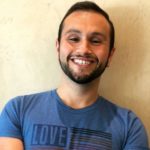Every December 1, we come together globally to mark World AIDS Day and recommit ourselves to eradicating HIV and the painful stigma those living with the virus experience worldwide.
Starting in 1988 at the height of the AIDS epidemic, this day also gives us a chance to honor the lives of those lost to AIDS-related illnesses and a reminder of the importance of dignity and respect for those currently living with the virus.
Each year has a theme that centers the day’s focus and 2022’s is Putting Ourselves to the Test: Achieving Equity to End HIV. With that purpose at our backs, our work this December — and far beyond it — is two-fold: 1) acknowledging the disparities and inequities that can create barriers for folks in HIV testing, prevention, and treatment, and 2) working as a united front to break down these barriers to ensure more equitable care across the globe.
It starts with us calling out these inequities directly. Many unfairly plague folks, especially those who come from marginalized communities such as systemic racism, spreading homophobia and transphobia, limited access to adequate and affordable healthcare, the ongoing COVID-19 pandemic, and inequitable wealth, among many others.
These disparities can unjustly hold those in need of HIV-related healthcare back, leaving some individuals at disproportionate risk for contracting and/or not receiving appropriate treatment for HIV. With so much progress made in the 34 years since the first World AIDS Day, there is still so much to do in supporting the HIV+ population.
There are approximately 1.5 million new cases of HIV every year across the globe, including over 35,000 new infections in the United States. Even in 2022, this work must remain a top priority … and that work starts with us.
It’s critical we do our part and focus on what we can control, namely our sexual health:
- Getting tested regularly for HIV (and COVID-19!)
- Practicing safer sex as often as possible with your partners
- Exploring prevention methods like PrEP (pre-exposure prophylaxis) and PeP (post-exposure prophylaxis) to see if they are right for you.
- Finding a medical professional you trust and building an open relationship.
- Educating yourself about what is means to be “status neutral” and how that can impact partnered sexual contact.
- Reviewing additional resources and support offered by DC Health.
But looking inward and taking personal action are just the beginning. Now more than ever, we’re also reminded that our wellness is also informed by who we are and how the world sees and treats us — and it’s only made worse by inequalities many face every single day.
So, that means our work must also look outside ourselves and towards our community:
- Advocating on the state, local, and federal levels for continued government action.
- Volunteering at local health or LGBTQ-focused non-profits in the DMV area.
- Calling out negative rhetoric about HIV and those living with it.
- Share this article on social media to ensure everyone can take action.
None of these action items alone will end HIV, neither will individual action. It will take all of us to make a real difference and our collective commitment in this space is the only way forward in a meaningful way. In fact, that has been the key to our hard-fought success up to this point.
We have seen the immense progress activists and advocates made possible: HIV infection rates are lessening, prevention methods are more accessible, and innovative treatments are transforming the lives of those living with the virus. Now, let’s make some more.
We can end HIV once and for all. This World AIDS Day, remember to do your part to keep yourself safe and get into the fight for a better world in your community. It’s never too late to make a difference … and, together, we can.
For more information on HIV and World AIDS Day, head to sexaulbeing.org.



